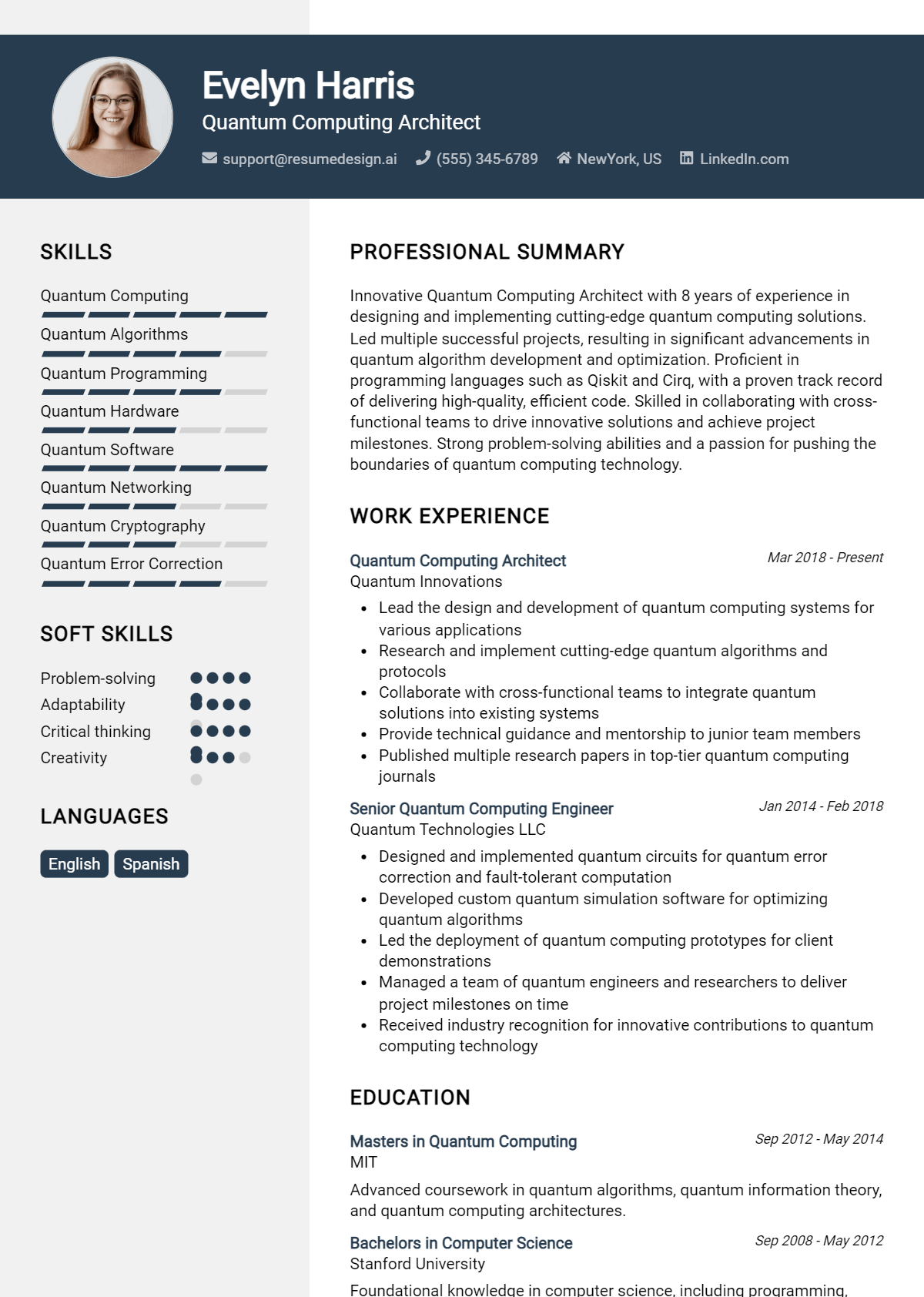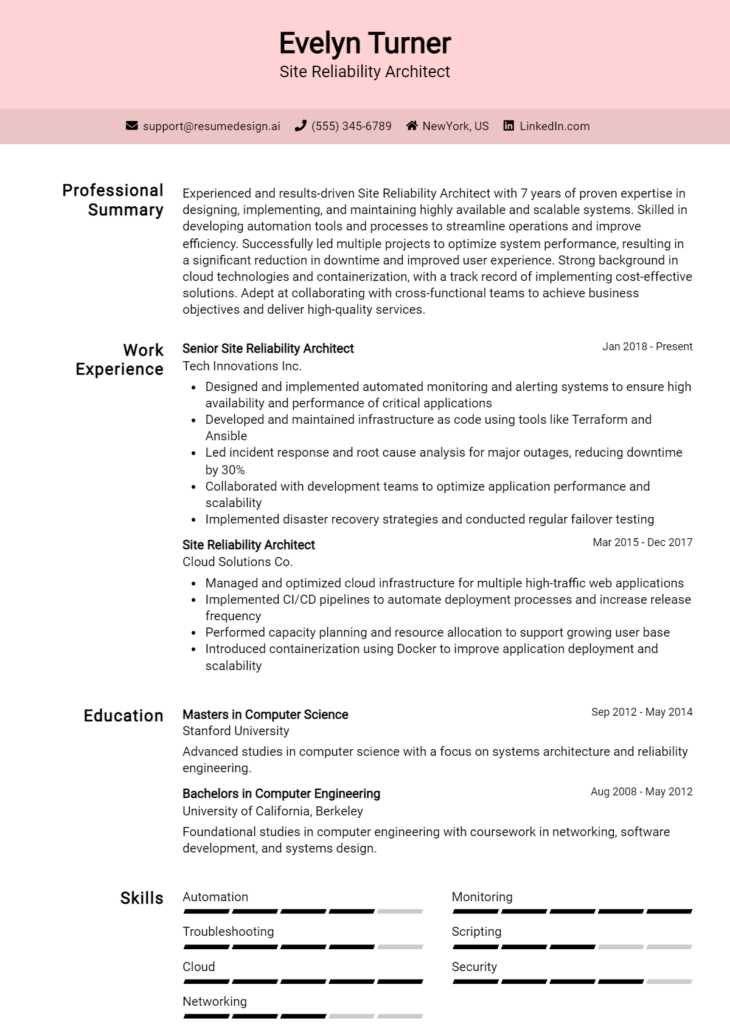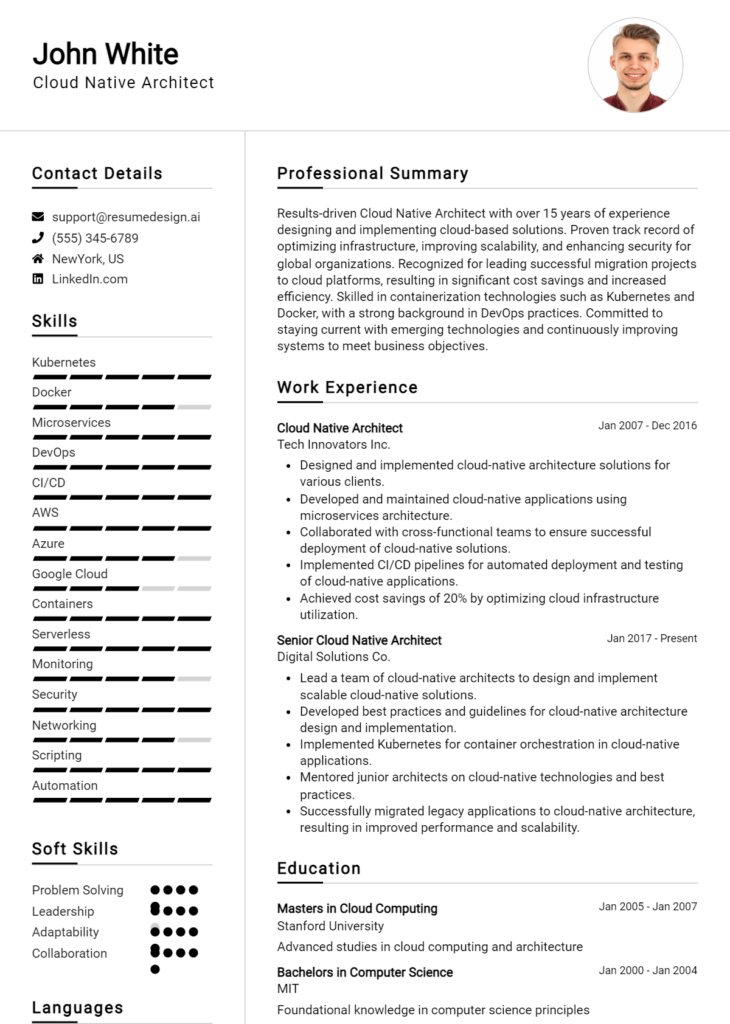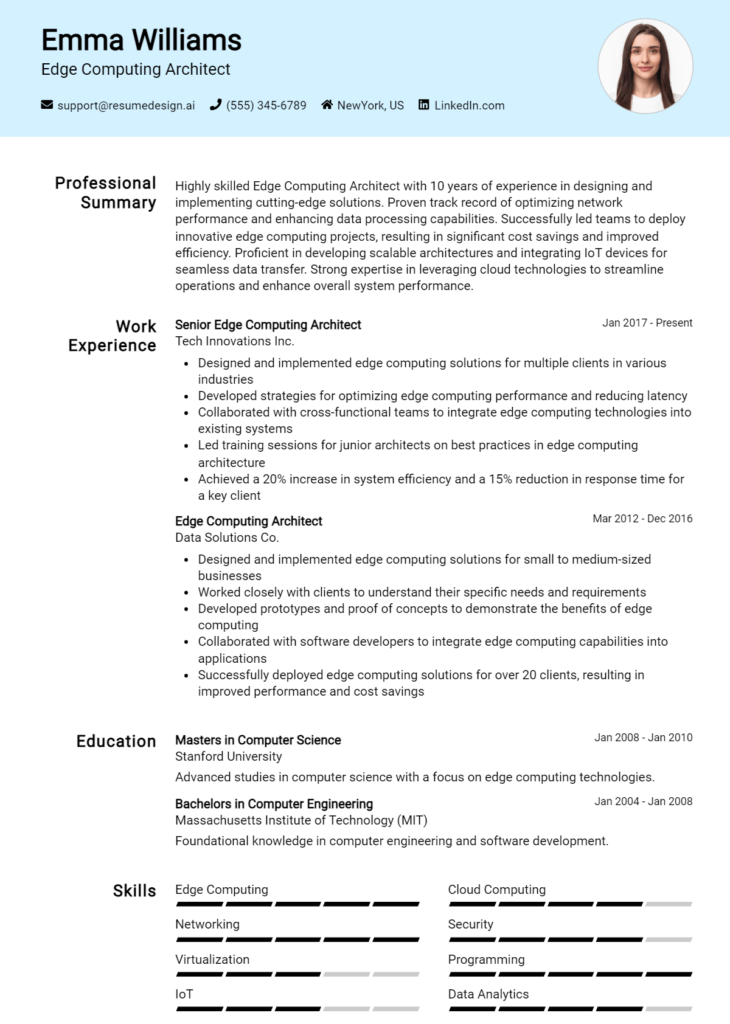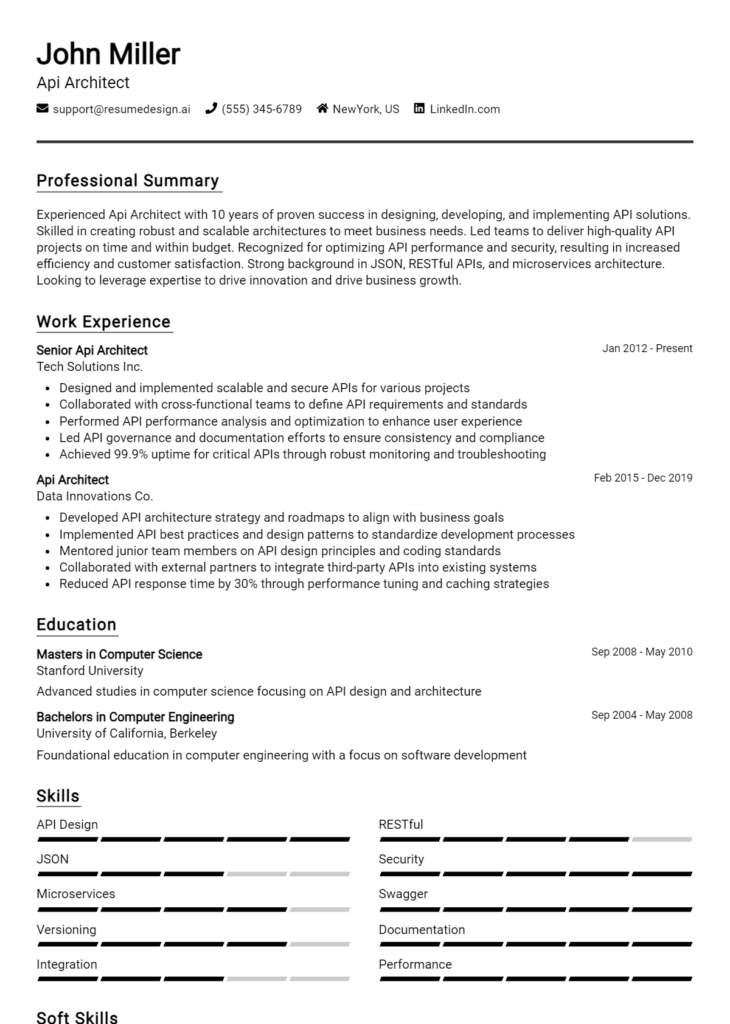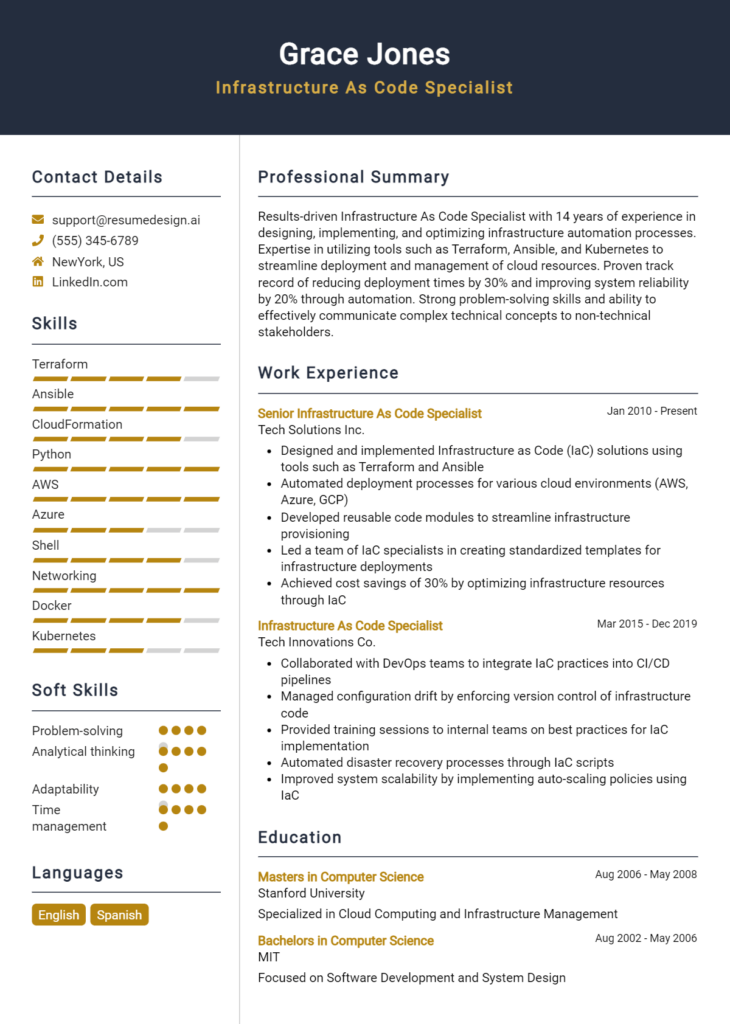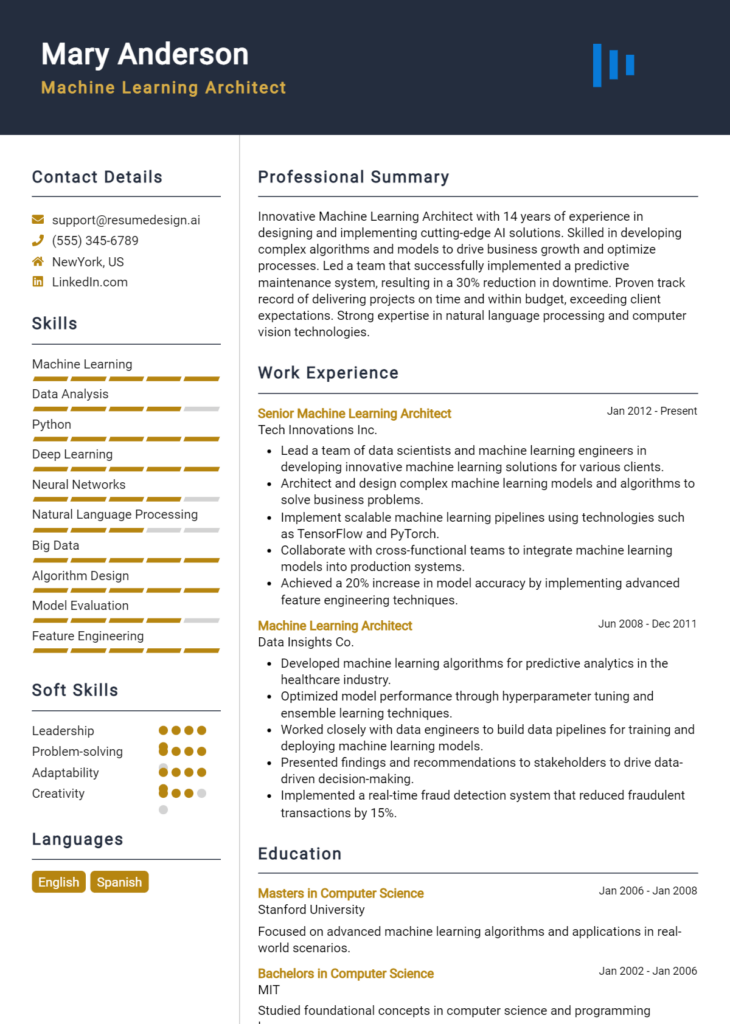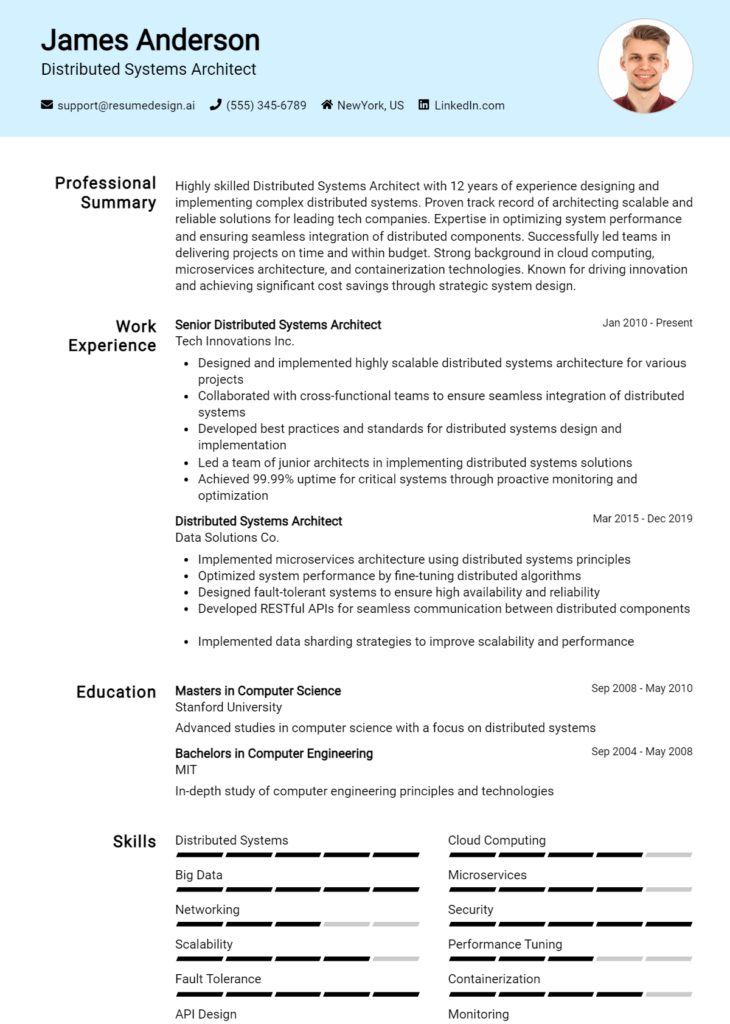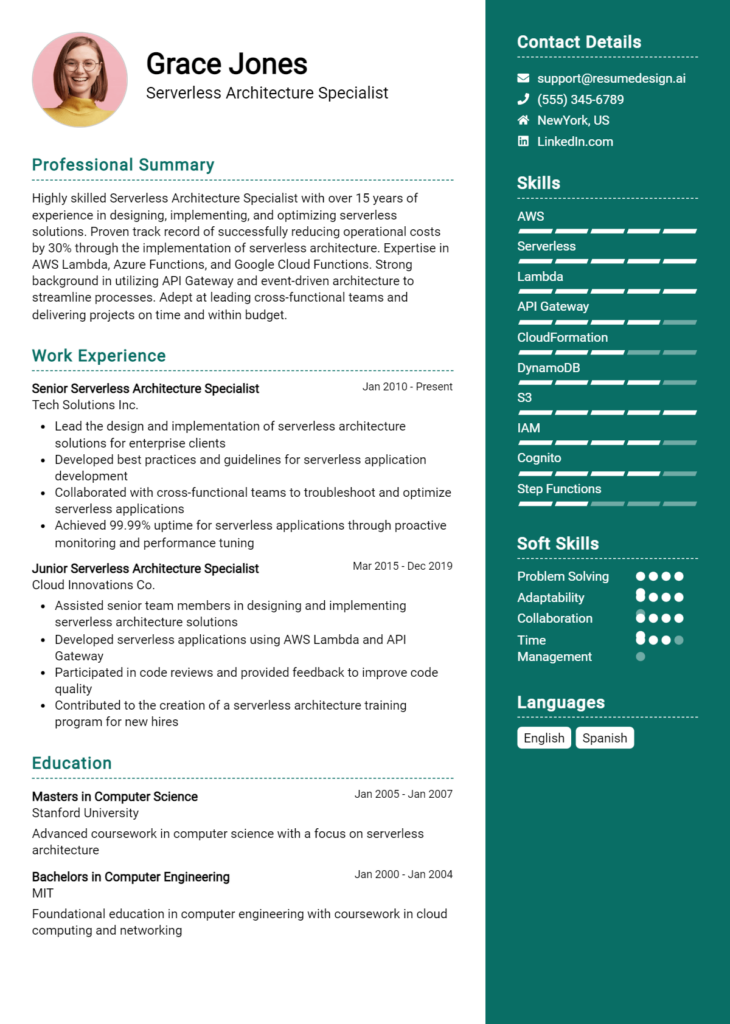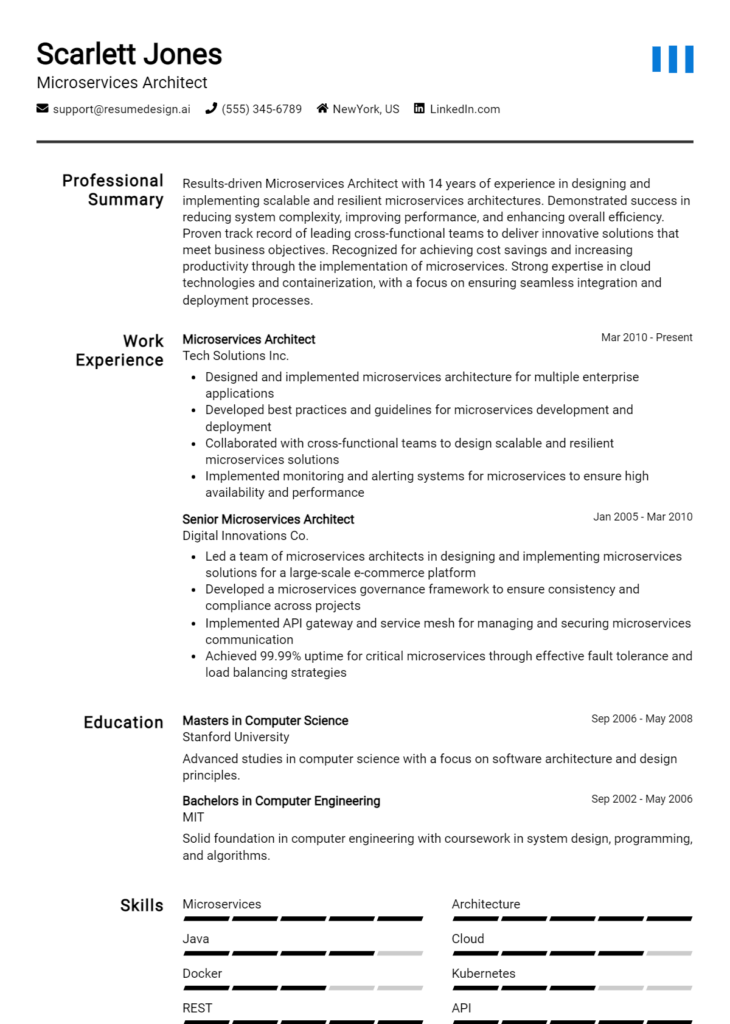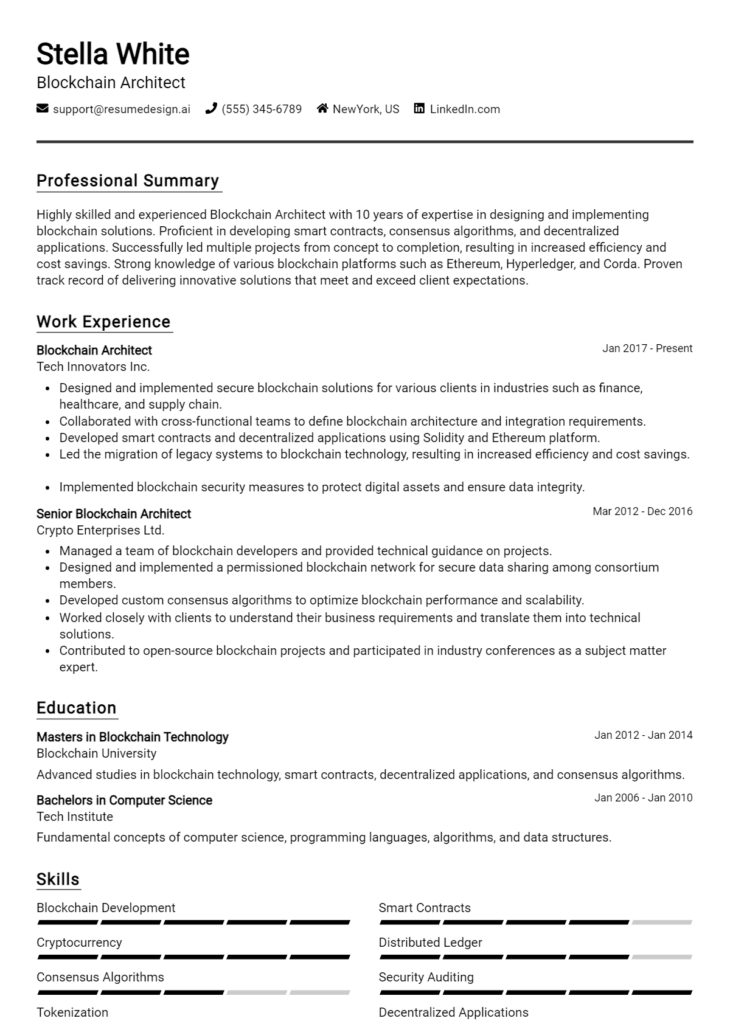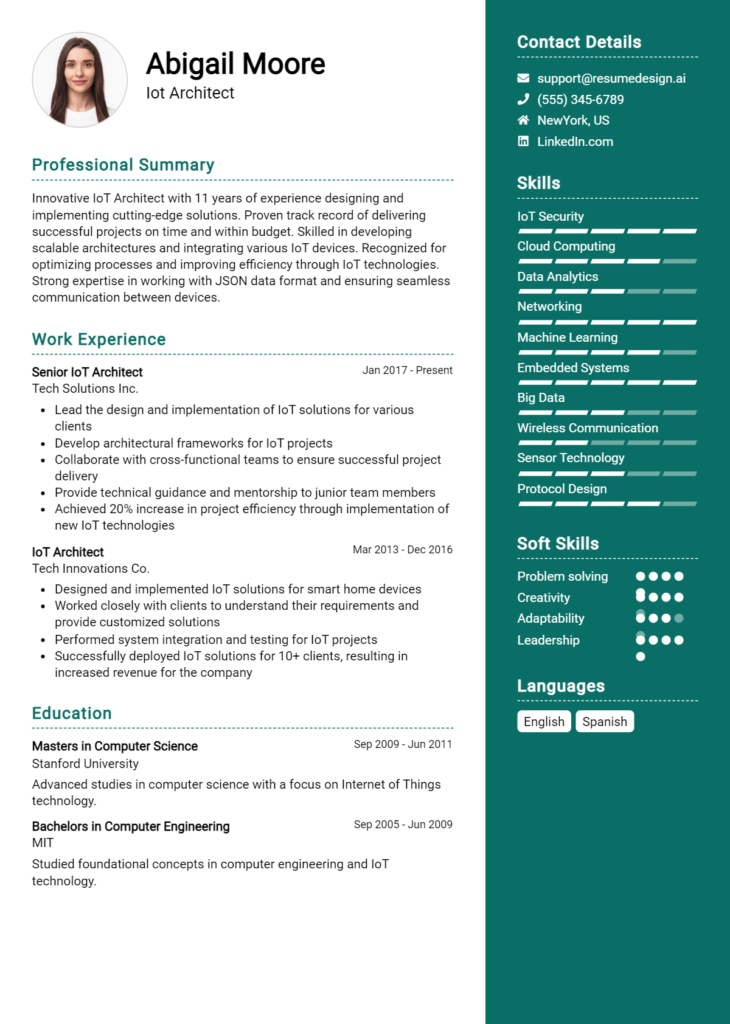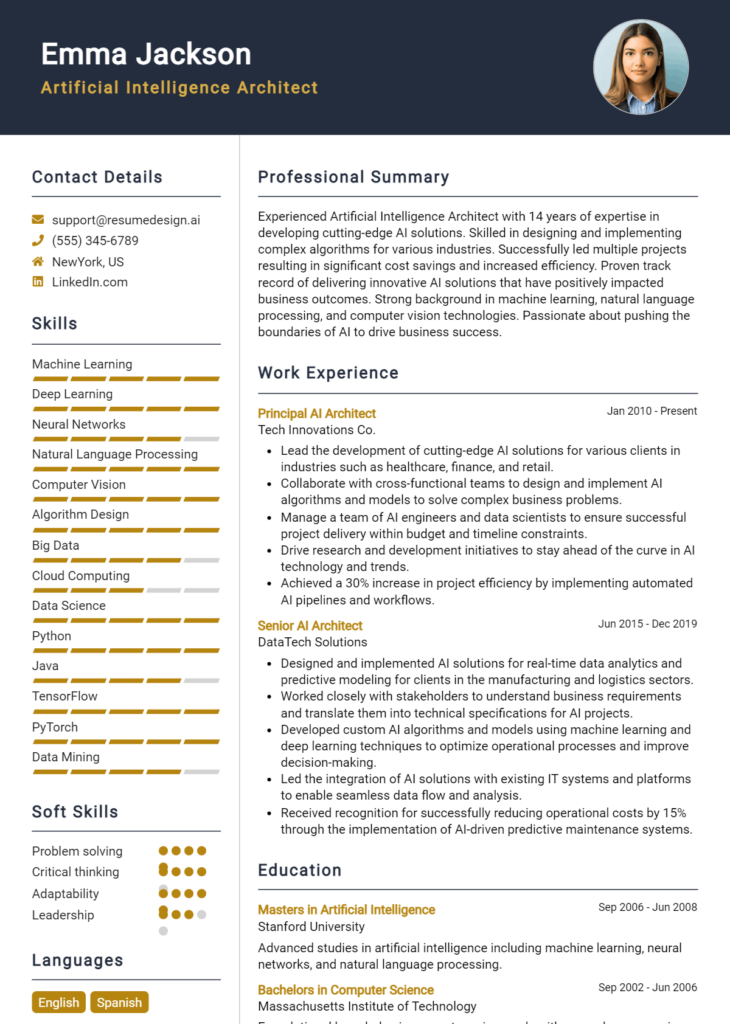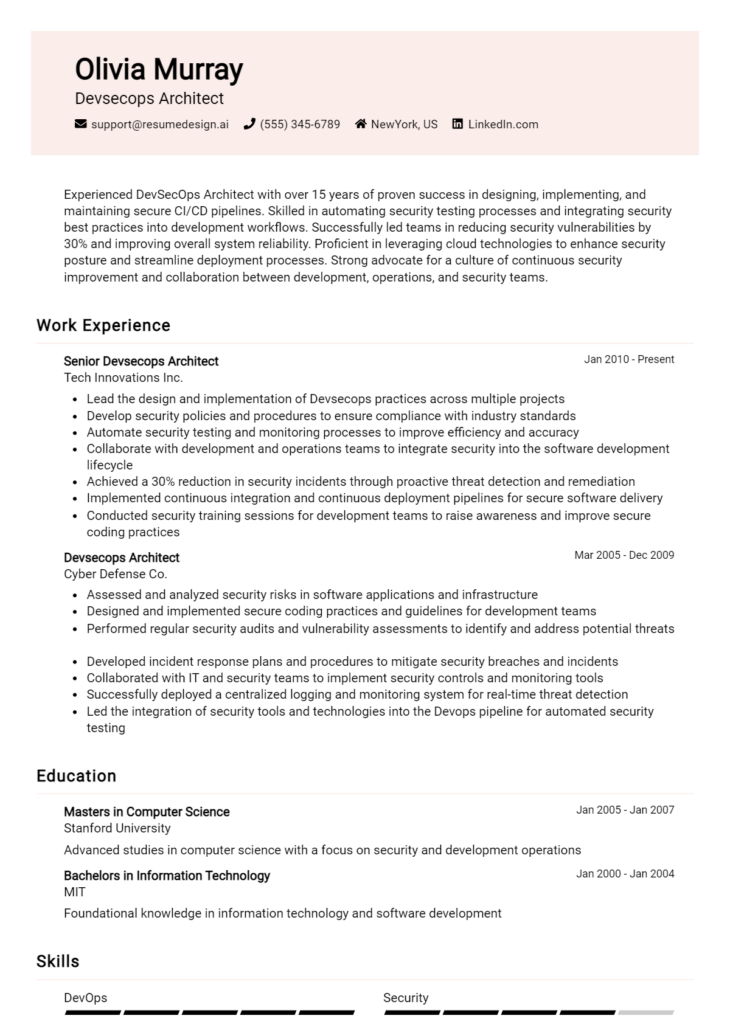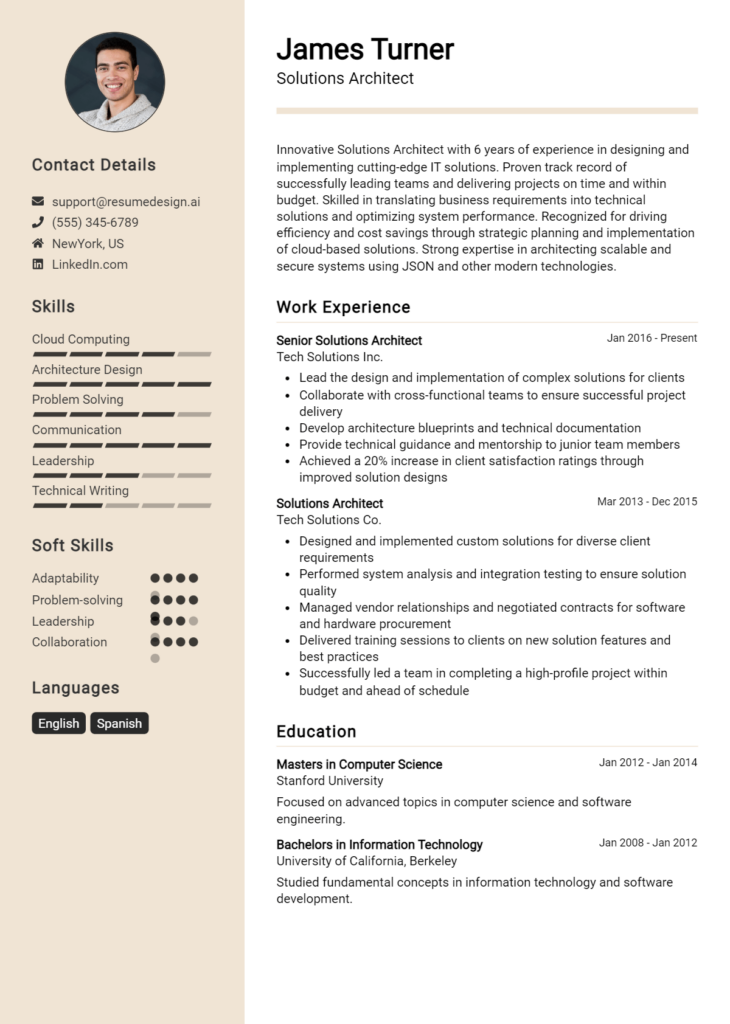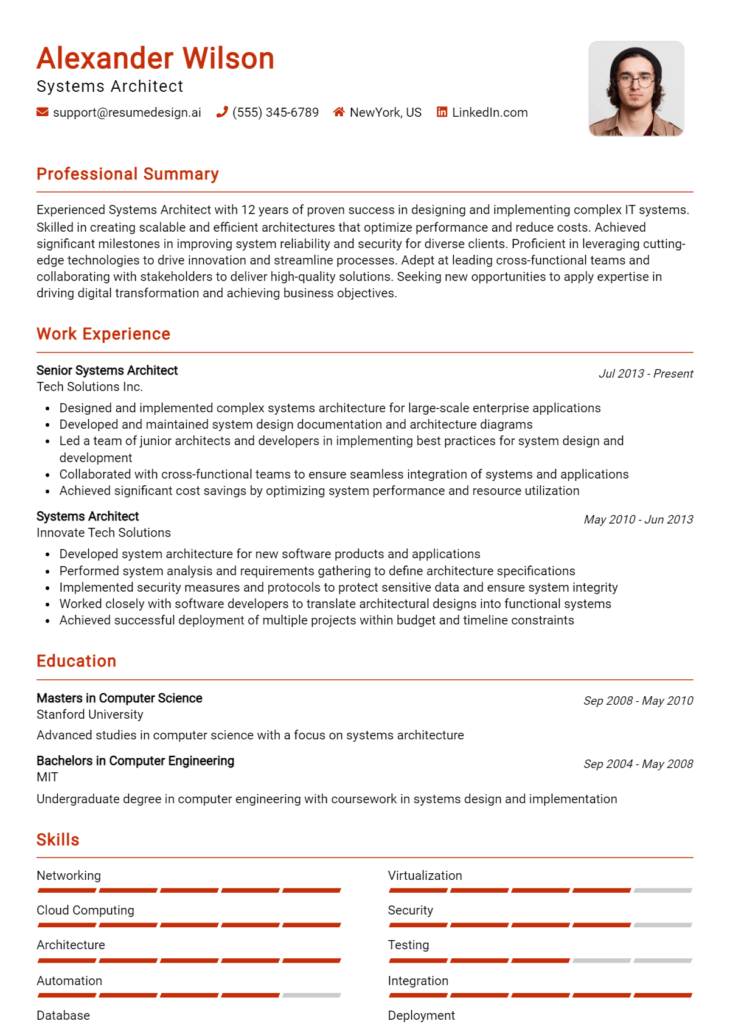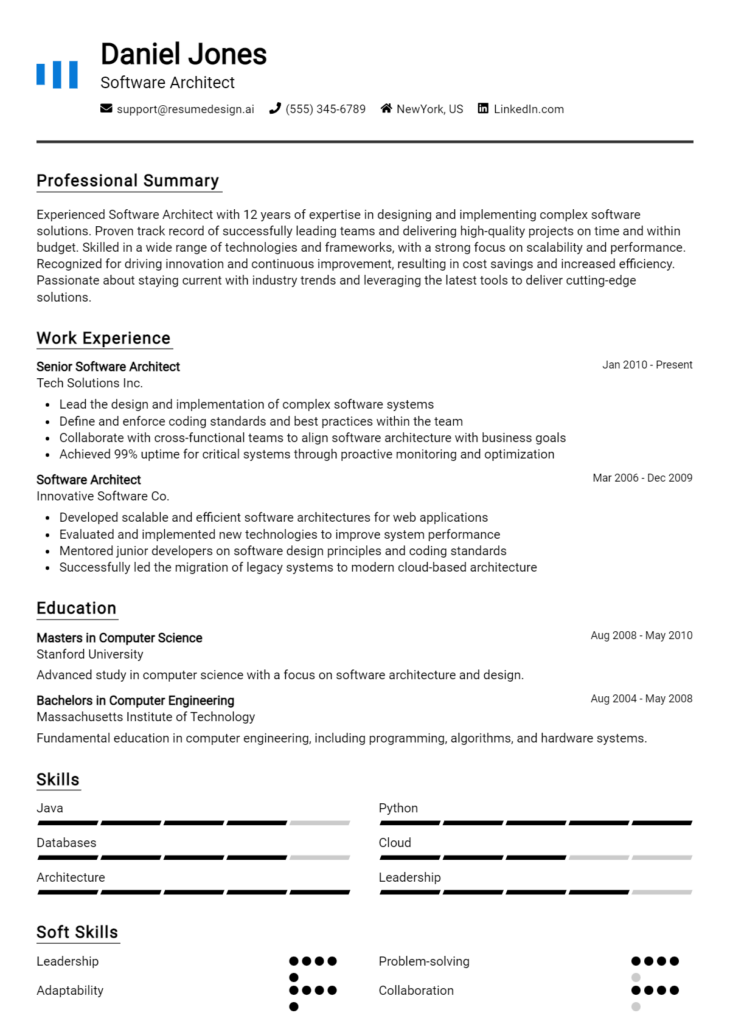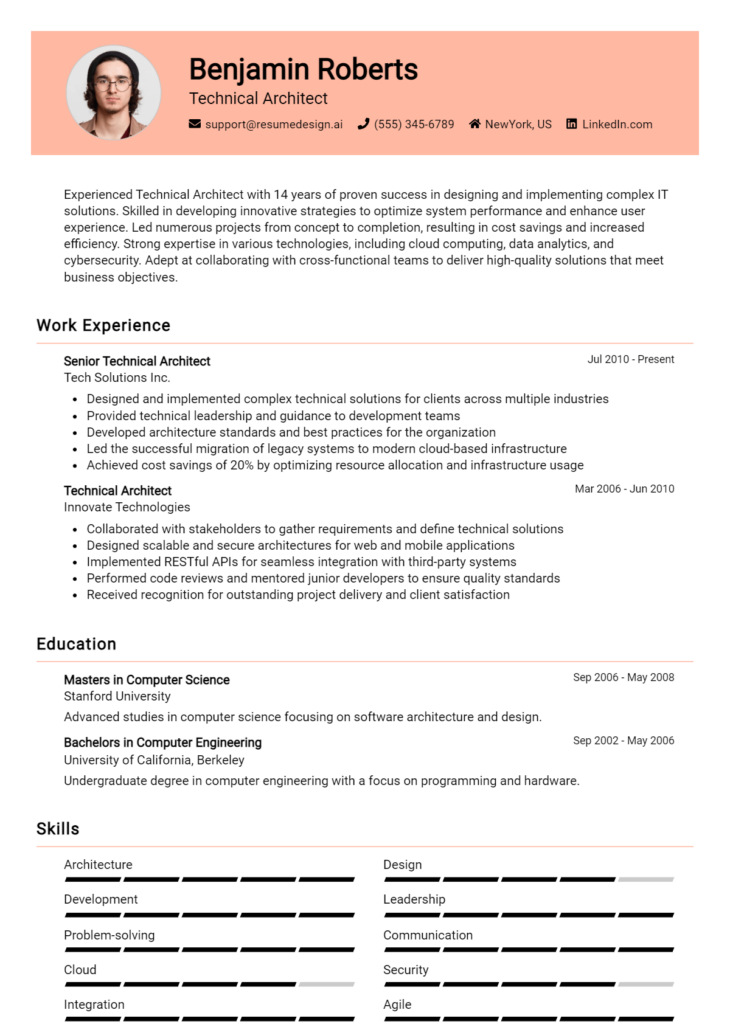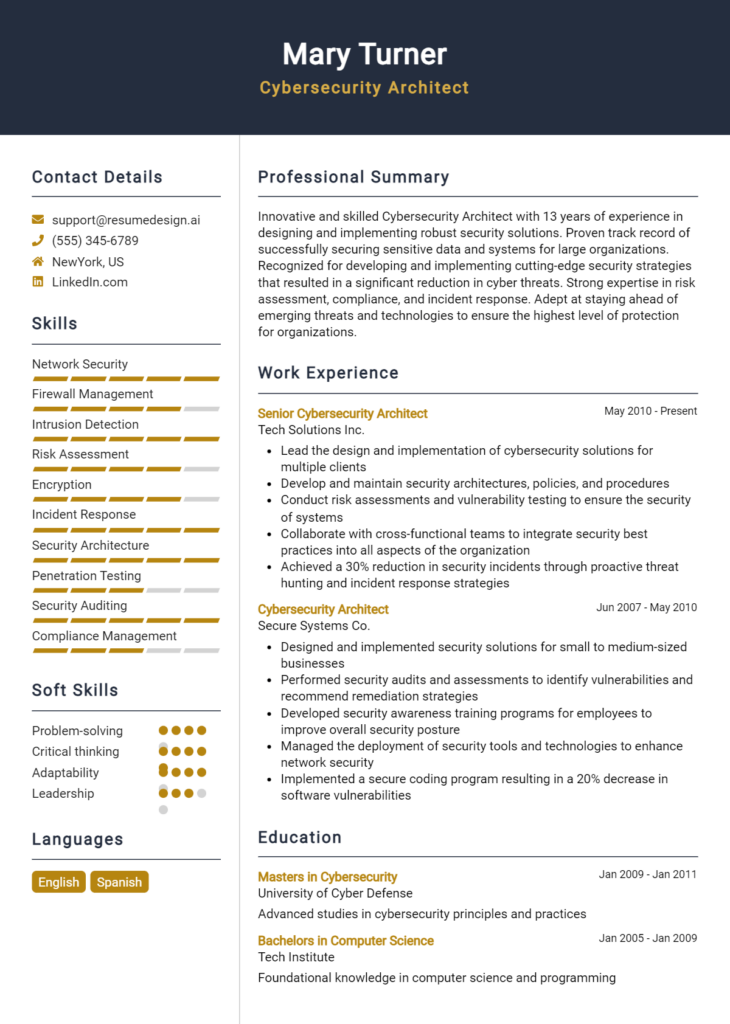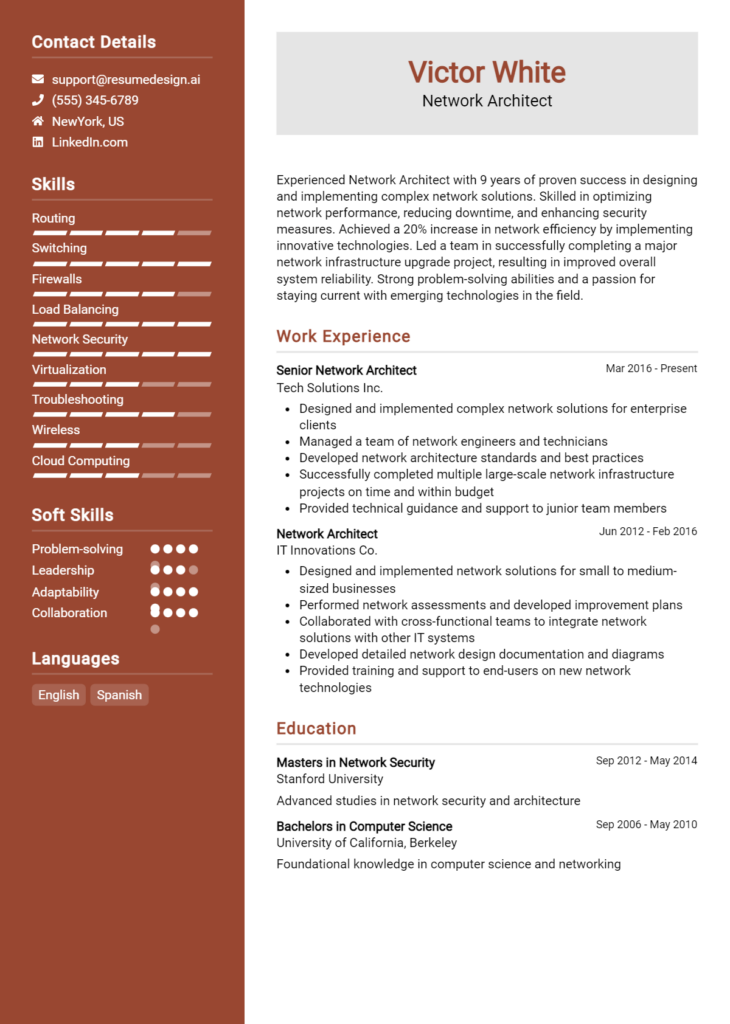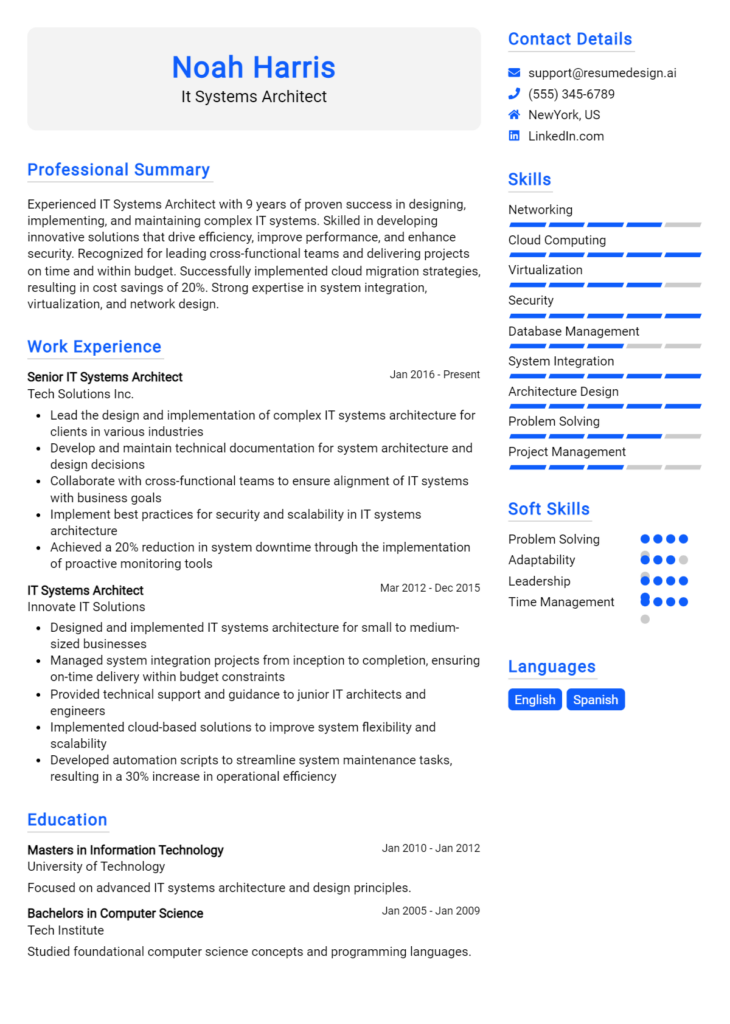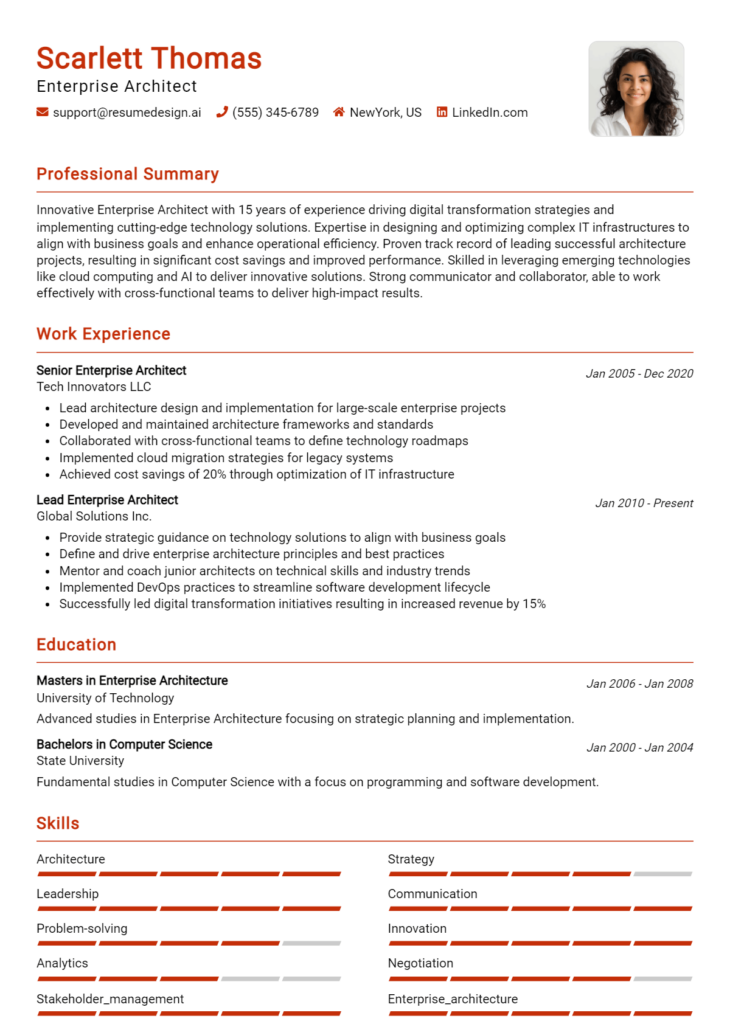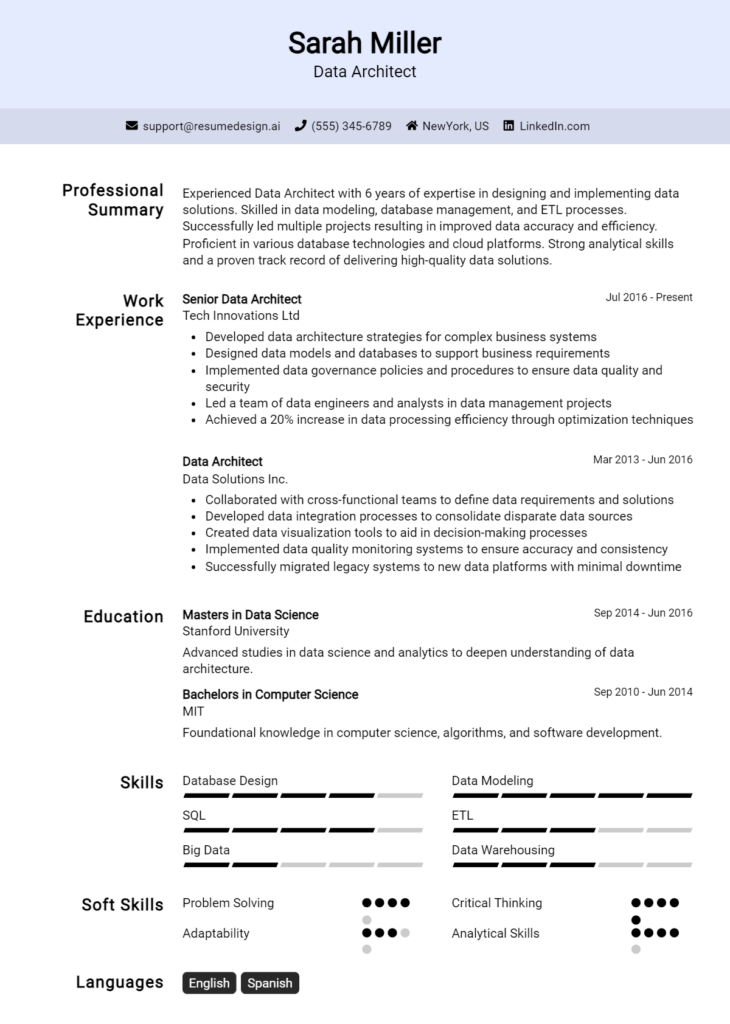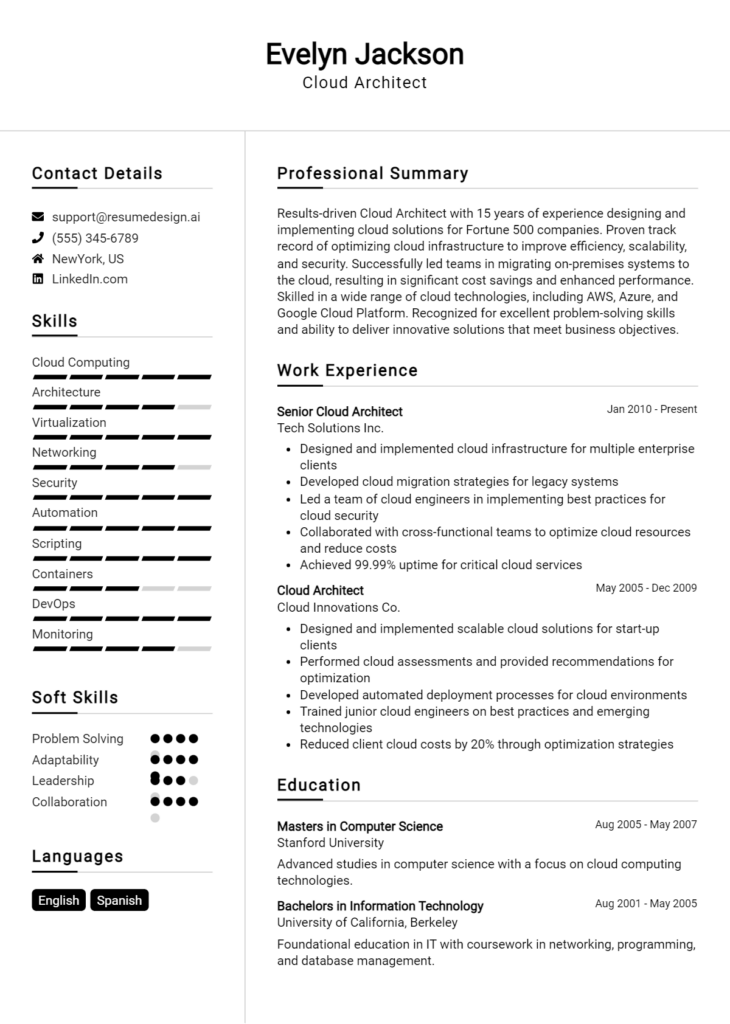Quantum Computing Architect Core Responsibilities
A Quantum Computing Architect is pivotal in integrating quantum technologies across various departments, requiring a blend of technical expertise in quantum algorithms and operational acumen. This role demands exceptional problem-solving skills to address complex computational challenges, ensuring alignment with organizational goals. Effective communication and collaboration are essential, as the architect bridges engineering, research, and development teams. A well-structured resume highlighting these competencies can significantly enhance career prospects in this cutting-edge field.
Common Responsibilities Listed on Quantum Computing Architect Resume
- Design and develop quantum algorithms to solve specific problems.
- Collaborate with cross-functional teams to integrate quantum solutions.
- Evaluate and select appropriate quantum hardware and software technologies.
- Conduct research to advance quantum computing methodologies.
- Optimize quantum circuits for improved performance and efficiency.
- Lead workshops and training sessions on quantum concepts.
- Analyze data and performance metrics from quantum experiments.
- Provide technical guidance and support to engineering teams.
- Stay updated on industry trends and advancements in quantum computing.
- Document architectural designs and implementation processes.
- Ensure compliance with industry standards and best practices.
High-Level Resume Tips for Quantum Computing Architect Professionals
A well-crafted resume is crucial for Quantum Computing Architect professionals, as it serves as the first point of contact between the candidate and potential employers. In a field that blends advanced physics, computer science, and engineering, your resume must effectively reflect your unique skills and notable achievements. It is not merely a list of qualifications; it's a marketing tool that showcases your expertise in quantum computing and your ability to contribute to innovative projects. This guide will provide practical and actionable resume tips specifically tailored for Quantum Computing Architect professionals, helping you to stand out in this competitive landscape.
Top Resume Tips for Quantum Computing Architect Professionals
- Tailor your resume for each application by aligning your skills and experiences with the specific job description.
- Highlight relevant experience in quantum computing, including specific projects, research, or technologies you have worked with.
- Quantify your achievements when possible, such as the impact of your work on project outcomes, efficiency improvements, or cost reductions.
- Showcase industry-specific skills such as quantum algorithms, quantum programming languages, and familiarity with quantum hardware.
- Incorporate keywords from the job listing to optimize your resume for Applicant Tracking Systems (ATS).
- Include publications, patents, or presentations that demonstrate your thought leadership and contributions to the field of quantum computing.
- Utilize a clean and professional format that allows easy readability and emphasizes key information.
- Highlight your collaboration and teamwork skills, as many quantum computing projects involve multidisciplinary teams.
- Keep your resume concise, ideally one to two pages, focusing on the most relevant and recent experiences.
- Consider adding a summary statement at the top that encapsulates your career goals and key strengths in quantum computing.
By implementing these tips, you can significantly enhance your chances of landing a job in the Quantum Computing Architect field. A focused and well-structured resume will not only showcase your qualifications but also demonstrate your commitment to the industry, making a strong impression on potential employers and setting you apart from the competition.
Why Resume Headlines & Titles are Important for Quantum Computing Architect
In the competitive field of quantum computing, a well-crafted resume headline or title serves as the first impression a candidate makes on hiring managers. For a Quantum Computing Architect, this succinct phrase is crucial as it not only captures attention but also encapsulates the candidate’s key qualifications in one impactful statement. A strong headline can effectively convey specialized skills, relevant experience, and unique contributions to potential employers, making it easier for them to identify suitable candidates quickly. Therefore, it is essential that the headline is concise, relevant, and directly aligned with the job being applied for, setting the tone for the rest of the resume.
Best Practices for Crafting Resume Headlines for Quantum Computing Architect
- Keep it concise—aim for one impactful phrase.
- Make it role-specific by including the job title and key qualifications.
- Use strong action verbs to convey expertise and accomplishments.
- Incorporate relevant keywords that align with the job description.
- Highlight unique skills or experiences that distinguish you from other candidates.
- Avoid jargon or overly technical terms that may confuse non-specialist readers.
- Tailor the headline for each application to reflect the specific job requirements.
- Ensure it resonates with the current trends and technologies in quantum computing.
Example Resume Headlines for Quantum Computing Architect
Strong Resume Headlines
Innovative Quantum Computing Architect with 10+ Years of Experience in Algorithm Development
Expert Quantum Software Engineer Specializing in Quantum Machine Learning Solutions
Accomplished Quantum Architect with a Proven Track Record in Building Scalable Quantum Systems
Dynamic Quantum Computing Specialist Focused on Quantum Circuit Design and Optimization
Weak Resume Headlines
Experienced Professional
Quantum Computing Expert
Seeking Opportunities in Quantum Computing
The strong headlines are effective because they immediately communicate specific skills and experiences relevant to the role of a Quantum Computing Architect, making them memorable and impactful. They highlight the candidate's unique strengths while aligning with the expectations of hiring managers. In contrast, the weak headlines fail to impress due to their vagueness and lack of specificity. They do not provide any real insight into the candidate's qualifications or areas of expertise, making them easily forgettable in a competitive job market.
Writing an Exceptional Quantum Computing Architect Resume Summary
A well-crafted resume summary is crucial for a Quantum Computing Architect, as it serves as the first impression a candidate makes on hiring managers. This brief yet powerful section can significantly influence whether your resume continues to be reviewed or is set aside. A strong summary quickly captures attention by highlighting key skills, relevant experience, and notable accomplishments that align with the specific requirements of the job. It should be concise, impactful, and tailored to the role being applied for, ensuring that it resonates with the needs of potential employers.
Best Practices for Writing a Quantum Computing Architect Resume Summary
- Quantify achievements: Use numbers and metrics to illustrate your contributions and impact in previous roles.
- Focus on relevant skills: Highlight technical skills and expertise that are particularly relevant to quantum computing.
- Tailor for the job description: Customize your summary to reflect the specific skills and experiences mentioned in the job posting.
- Be concise: Aim for 3-5 sentences that deliver maximum information without excessive detail.
- Use action verbs: Start sentences with strong action verbs to convey a sense of proactivity and accomplishment.
- Showcase industry knowledge: Mention any relevant certifications, methodologies, or frameworks you are familiar with in quantum computing.
- Highlight teamwork and leadership: Emphasize your ability to work in teams or lead projects, as collaboration is often key in tech roles.
- Reflect passion for the field: Convey enthusiasm for quantum computing and your commitment to advancing the technology.
Example Quantum Computing Architect Resume Summaries
Strong Resume Summaries
Results-driven Quantum Computing Architect with over 8 years of experience in developing scalable quantum algorithms, leading to a 30% increase in processing efficiency for complex datasets. Proficient in Qiskit and Cirq, with a proven track record of successful project management and cross-functional collaboration.
Innovative Quantum Computing Architect specializing in quantum error correction and optimization techniques. Successfully reduced computational errors by 25% through the implementation of advanced algorithms, contributing to the overall robustness of quantum systems in enterprise applications.
Dynamic Quantum Computing Architect with a Ph.D. in Quantum Information Science and extensive experience in transforming theoretical models into practical applications. Spearheaded a project that developed the first quantum algorithm capable of outperforming classical counterparts in real-time data analysis.
Weak Resume Summaries
Experienced architect with a background in quantum computing. I have worked on various projects and have some knowledge of the field.
Skilled in technology and computer science, I am interested in quantum computing and looking for new opportunities in the industry.
The strong resume summaries stand out because they provide specific, quantifiable results, relevant skills, and direct connections to the role of Quantum Computing Architect. They demonstrate the candidate's impact and expertise in the field, making them memorable to hiring managers. In contrast, the weak summaries lack detail and specificity, failing to convey the candidate's true capabilities or achievements, which diminishes their effectiveness in capturing attention.
Work Experience Section for Quantum Computing Architect Resume
The work experience section of a Quantum Computing Architect resume is crucial as it serves as a platform for candidates to demonstrate their technical prowess, leadership abilities, and the effectiveness of their contributions to the industry. This section allows candidates to showcase their proficiency in quantum algorithms, hardware architecture, and software development while also highlighting their capability to manage teams and deliver high-quality products. By quantifying achievements and aligning their experiences with industry standards, candidates can effectively communicate their value to potential employers, illustrating how they can drive innovation and success within a quantum computing environment.
Best Practices for Quantum Computing Architect Work Experience
- Highlight specific quantum technologies and methodologies employed in past roles.
- Quantify achievements with metrics, such as performance improvements or cost reductions.
- Emphasize collaborative projects that demonstrate teamwork and cross-functional skills.
- Detail leadership roles, including team management and project oversight.
- Include relevant certifications and continuing education related to quantum computing.
- Use industry-standard terminology to align your experiences with job descriptions.
- Showcase contributions to open-source projects or publications in quantum research.
- Tailor experiences to match the specific requirements of the job you are applying for.
Example Work Experiences for Quantum Computing Architect
Strong Experiences
- Led a team of 10 engineers to develop a quantum algorithm that improved processing speed by 30%, resulting in a successful deployment for a Fortune 500 client.
- Designed and implemented a hybrid quantum-classical system that reduced operational costs by 25%, enhancing overall system efficiency.
- Collaborated with cross-functional teams to publish three peer-reviewed papers on quantum error correction, significantly advancing the understanding of noise reduction in quantum circuits.
- Managed the development of a quantum simulation platform that increased user engagement by 50%, facilitating better access to quantum computing for researchers.
Weak Experiences
- Worked on various quantum projects without specifying the technologies used or the outcomes achieved.
- Involved in team meetings related to quantum computing but did not contribute to any significant decisions or developments.
- Assisted in research without detailing specific roles or contributions made to the projects.
- Participated in quantum computing courses but failed to highlight any practical applications or results from the training.
The strong experiences listed above are considered effective because they provide concrete examples of leadership, quantifiable results, and collaborative efforts in the field of quantum computing. They clearly articulate the candidate's impact and contributions, which are essential for standing out in a competitive job market. In contrast, the weak experiences lack specificity, measurable outcomes, and clear roles, making it difficult for potential employers to gauge the candidate's true capabilities and achievements in the quantum computing domain.
Education and Certifications Section for Quantum Computing Architect Resume
The education and certifications section of a Quantum Computing Architect resume is crucial, as it serves to illustrate the candidate's academic foundation and their commitment to ongoing professional development in a highly specialized field. This section not only showcases relevant degrees and certifications but also highlights the candidate's dedication to continuous learning, which is essential in the rapidly evolving domain of quantum computing. By providing details on pertinent coursework, recognized certifications, and specialized training, candidates can significantly enhance their credibility and demonstrate their alignment with the job role, making them more appealing to potential employers.
Best Practices for Quantum Computing Architect Education and Certifications
- Include only relevant degrees and certifications that pertain to quantum computing, computer science, or related fields.
- List advanced degrees (Master's or PhD) that emphasize your expertise in quantum computing or theoretical physics.
- Highlight industry-recognized certifications, such as those from IBM Quantum or Microsoft Azure Quantum.
- Provide details on coursework that specifically relates to quantum algorithms, quantum mechanics, or quantum information theory.
- Include any specialized training programs or workshops that demonstrate your commitment to staying current in the field.
- Use clear formatting to make your education and certifications easy to read and understand.
- Consider including honors or awards received during your academic career that might enhance your profile.
- Update this section regularly to reflect your latest education and certifications as you continue to grow in your career.
Example Education and Certifications for Quantum Computing Architect
Strong Examples
- PhD in Quantum Computing, Stanford University, 2022
- Certified Quantum Computing Professional (CQCP), IBM, 2023
- Master's Degree in Computer Science with a focus on Quantum Algorithms, Massachusetts Institute of Technology, 2020
- Completed coursework in Quantum Mechanics, Quantum Information Theory, and Advanced Quantum Algorithms.
Weak Examples
- Bachelor's Degree in History, University of California, 2015
- Certification in Basic Computer Skills, Online Learning Platform, 2019
- Non-technical workshops on Public Speaking and Project Management
- High School Diploma, Graduated in 2010
The strong examples are considered effective because they directly align with the qualifications required for a Quantum Computing Architect position, showcasing advanced academic achievements and relevant certifications from reputable institutions. In contrast, the weak examples lack relevance to the quantum computing field, indicating a disconnect from the necessary skills and knowledge for the role, which could detract from the candidate's overall appeal to employers seeking specialized expertise.
Top Skills & Keywords for Quantum Computing Architect Resume
In the rapidly evolving field of quantum computing, a well-crafted resume is essential for a Quantum Computing Architect to stand out among candidates. The importance of showcasing both hard and soft skills cannot be overstated, as they demonstrate a candidate's technical prowess and interpersonal abilities. A Quantum Computing Architect not only needs to possess a deep understanding of quantum mechanics and computational theory but also requires strong problem-solving abilities, teamwork, and communication skills. Emphasizing these skills in your resume will help potential employers recognize your suitability for the role and your capacity to contribute to groundbreaking projects in this innovative domain.
Top Hard & Soft Skills for Quantum Computing Architect
Soft Skills
- Analytical Thinking
- Problem Solving
- Team Collaboration
- Effective Communication
- Adaptability
- Creative Thinking
- Attention to Detail
- Time Management
- Leadership
- Project Management
Hard Skills
- Quantum Algorithms Design
- Quantum Circuit Implementation
- Familiarity with Quantum Programming Languages (e.g., Qiskit, Cirq)
- Knowledge of Quantum Hardware (e.g., superconducting qubits, trapped ions)
- Classical Computing Proficiency
- Data Analysis and Visualization
- Machine Learning Techniques
- Understanding of Quantum Error Correction
- Simulation Tools for Quantum Systems
- Research and Development in Quantum Technologies
For more information on the essential skills needed in your resume, be sure to check out skills. Additionally, highlighting relevant work experience will further enhance your profile, showcasing your practical application of these skills in the field of quantum computing.
Stand Out with a Winning Quantum Computing Architect Cover Letter
I am excited to apply for the Quantum Computing Architect position at [Company Name], as advertised on [Job Board/Company Website]. With a robust background in quantum algorithms, computational physics, and software development, coupled with hands-on experience in building quantum systems, I am confident in my ability to contribute to your innovative projects and help drive the future of quantum technology at your esteemed organization.
In my previous role at [Previous Company], I led a team of researchers in developing a novel quantum algorithm that improved computational efficiency by 30%. My expertise in both theoretical and applied quantum mechanics allowed me to bridge the gap between complex quantum theories and practical applications. I have a deep understanding of quantum hardware, including superconducting qubits and trapped ions, which enables me to design architectures that maximize performance while addressing scalability and error correction challenges. I am particularly drawn to [Company Name] for its commitment to advancing quantum computing, and I am eager to contribute my skills to your groundbreaking projects.
Collaboration is at the heart of successful quantum computing initiatives, and I pride myself on my ability to work effectively within interdisciplinary teams. I have collaborated with physicists, engineers, and software developers to create integrated solutions that leverage the unique capabilities of quantum systems. My strong communication skills allow me to present complex concepts in accessible terms, ensuring that all stakeholders are aligned and informed throughout the development process. I am particularly impressed by [specific project or initiative from the company], and I am eager to bring my expertise in quantum architecture to enhance and expand these efforts.
Thank you for considering my application. I am enthusiastic about the opportunity to discuss how my background in quantum computing aligns with the goals of [Company Name]. I look forward to the possibility of contributing to your team and helping to shape the future of quantum technology. Please feel free to contact me at your convenience to schedule a discussion.
Common Mistakes to Avoid in a Quantum Computing Architect Resume
When crafting a resume for the role of a Quantum Computing Architect, it's crucial to present your skills and experiences in a way that effectively highlights your qualifications. However, many candidates make common mistakes that can undermine their chances of landing an interview. Understanding these pitfalls can help you create a compelling resume that stands out in a competitive job market.
Neglecting to Tailor the Resume: Failing to customize your resume for the specific job description can lead to missed opportunities. Tailor your skills and experiences to align with the requirements outlined in the job posting.
Overlooking Key Skills: Quantum computing requires a unique set of skills, including knowledge of quantum algorithms and programming languages like Qiskit or Cirq. Omitting these from your resume can signal a lack of relevant expertise.
Ignoring Soft Skills: While technical proficiency is essential, soft skills such as collaboration, communication, and problem-solving are equally vital in a team-oriented field like quantum computing. Be sure to highlight these abilities.
Using Jargon Without Explanation: While it’s important to demonstrate your technical knowledge, using too much jargon without context can confuse hiring managers. Make sure to explain complex terms or concepts in a way that is accessible.
Lacking Quantifiable Achievements: Many candidates fail to include specific achievements or metrics that showcase their contributions to previous projects. Use numbers and outcomes to illustrate your impact in past roles.
Focusing on Responsibilities Instead of Results: Simply listing responsibilities can make your resume feel flat. Instead, emphasize the results of your actions, such as successful project completions, innovations, or improvements in efficiency.
Formatting Issues: A cluttered or poorly organized resume can detract from your qualifications. Use clear headings, bullet points, and a consistent format to make your resume easy to read and visually appealing.
Not Including Relevant Projects: If you have worked on relevant quantum computing projects, either professionally or academically, be sure to include them. Highlighting specific projects demonstrates your hands-on experience and passion for the field.
Conclusion
As we conclude our exploration of the Quantum Computing Architect role, it's essential to highlight the key insights that can propel your career in this cutting-edge field. We discussed the critical responsibilities of a Quantum Computing Architect, which include designing quantum algorithms, optimizing quantum systems, and collaborating with interdisciplinary teams to advance quantum technologies. Additionally, we examined the essential skills required for this position, such as proficiency in quantum programming languages, a solid understanding of quantum mechanics, and experience with hardware integration.
With the rapidly evolving landscape of quantum computing, staying competitive requires not just knowledge and skills but also a polished resume that effectively showcases your qualifications. We encourage you to take the time to review your Quantum Computing Architect resume to ensure it reflects your expertise and achievements accurately.
To assist you in this process, there are various resources available. You can explore resume templates to find a layout that suits your style, use the resume builder for a user-friendly experience while crafting your resume, check out resume examples for inspiration, and utilize cover letter templates to complement your application.
Take the next step in advancing your career by refining your resume today!

